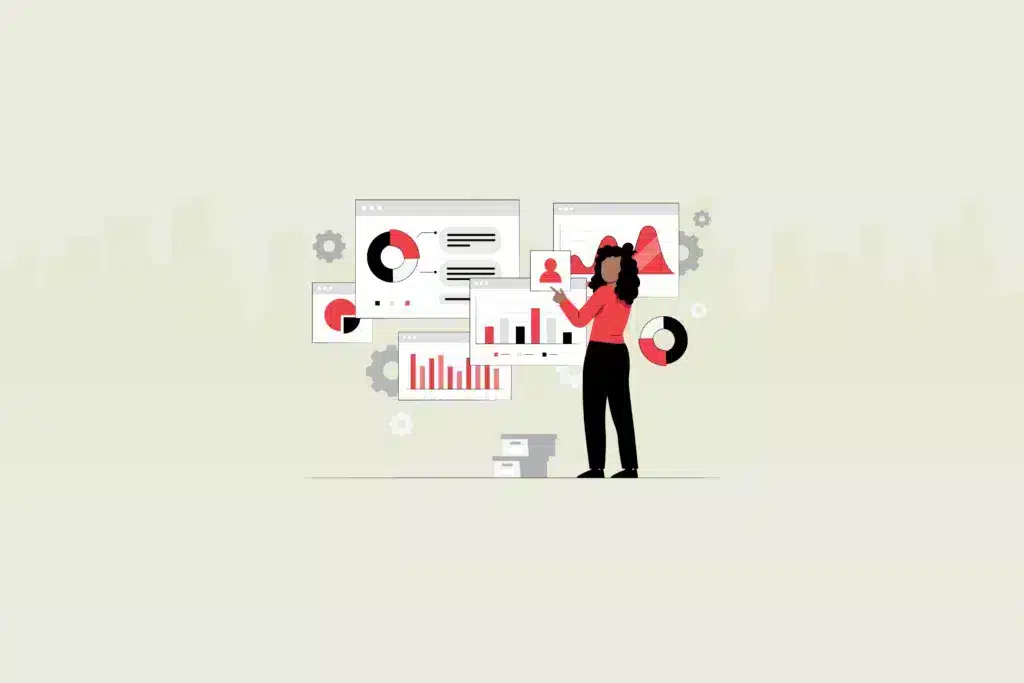In today’s rapidly evolving business landscape, the role of Supplier Quality Engineer (SQE) has gained significant prominence. As organizations strive to optimize their supply chain operations and ensure the delivery of high-quality products and services, the demand for skilled SQEs has seen a remarkable upward trend.
According to recent analytics, the number of job postings for SQEs has increased by X% over the past year, reflecting the growing recognition of their critical role in driving operational excellence and customer satisfaction. With the focus on mitigating risks and maintaining robust supplier networks, HR professionals and CXOs are increasingly prioritizing the recruitment of competent Supplier Quality Engineers who possess a diverse skill set and a deep understanding of quality management principles. In this context, it becomes imperative to ask targeted interview questions that assess a candidate’s technical expertise, problem-solving abilities, and ability to collaborate effectively with suppliers to drive continuous improvement.
Here are the top 60 Supplier Quality Engineer interview questions to ask job applicants:
15 general interview questions for Supplier Quality Engineer
- Can you describe your experience in supplier quality management and your familiarity with relevant industry standards?
- How do you typically assess the quality capabilities and performance of potential suppliers?
- Can you walk us through the steps you take to qualify a new supplier?
- What methods do you employ to monitor and track supplier performance and identify areas for improvement?
- How do you ensure that suppliers meet the required quality standards and specifications?
- Can you provide an example of a situation where you had to address a significant quality issue with a supplier? How did you handle it?
- How do you manage supplier audits and what criteria do you use to evaluate their compliance?
- Describe a time when you collaborated with suppliers to implement a process improvement initiative. What was the outcome?
- How do you handle supplier non-conformances and implement corrective and preventive actions?
- Can you discuss your experience with supplier development programs and how you have contributed to enhancing supplier capabilities?
- How do you ensure effective communication and collaboration with suppliers, both internally and externally?
- Describe a time when you had to resolve a conflict or disagreement with a supplier. How did you approach the situation?
- What tools or software do you utilize to manage supplier-quality data and documentation?
- How do you stay updated with the latest advancements in supplier quality management practices and technologies?
- Can you outline your approach to fostering strong, long-term relationships with suppliers while ensuring the delivery of high-quality products or services?
5 sample answers to general interview questions for Supplier Quality Engineer
- Can you describe your experience in supplier quality management and your familiarity with relevant industry standards?
look for: Look for candidates who can demonstrate a strong understanding of supplier quality management principles and experience in working with industry standards.
Example answer: “In my previous role as a Supplier Quality Engineer at Company XYZ, I was responsible for overseeing the quality management of our supplier network. I have extensive experience in conducting supplier audits, assessing supplier capabilities, and ensuring compliance with industry standards such as ISO 9001 and IATF 16949. I have also implemented robust quality control processes and collaborated with suppliers to drive continuous improvement initiatives.”
- How do you typically assess the quality capabilities and performance of potential suppliers?
look for: Look for candidates who can articulate a systematic approach to evaluating supplier quality capabilities and performance, including methods such as audits, inspections, and performance metrics.
Example answer: “When assessing potential suppliers, I utilize a multi-faceted approach. Firstly, I conduct thorough supplier audits to evaluate their quality management systems, processes, and facilities. I also perform on-site inspections to ensure their manufacturing practices align with our quality requirements. Additionally, I analyze historical performance data and track key performance indicators (KPIs) such as defect rates, on-time delivery, and customer satisfaction to gain insights into their overall performance and reliability as a supplier.”
- How do you ensure that suppliers meet the required quality standards and specifications?
look for: Look for candidates who emphasize proactive measures such as quality agreements, clear communication, and ongoing monitoring to ensure suppliers meet quality standards and specifications.
Example answer: “To ensure suppliers meet the required quality standards and specifications, I establish comprehensive quality agreements that outline the expectations, requirements, and quality control measures. I maintain open and transparent communication channels with suppliers to address any potential deviations or issues promptly. Additionally, I implement a robust monitoring system to track supplier performance, conduct periodic audits, and perform regular inspections to ensure ongoing adherence to quality standards.”
- Can you discuss your experience with supplier development programs and how you have contributed to enhancing supplier capabilities?
look for: Look for candidates who have experience in implementing supplier development programs and can provide examples of how they have collaborated with suppliers to enhance their capabilities and drive improvement.
Example answer: “During my tenure as a Supplier Quality Engineer, I have actively contributed to supplier development programs aimed at improving their quality capabilities. For instance, I initiated a joint process improvement project with a critical supplier to enhance their manufacturing efficiency and reduce defects. Through regular meetings, sharing best practices, and providing training, we achieved a significant reduction in defects and improved overall product quality. This experience has reinforced my belief in the importance of collaborative relationships with suppliers to drive continuous improvement.”
- How do you handle supplier non-conformances and implement corrective and preventive actions?
look for: Look for candidates who demonstrate a structured approach to handling non-conformances, including root cause analysis, corrective actions, preventive measures, and collaboration with suppliers.
Example answer: “When dealing with supplier non-conformances, I follow a structured process. First, I conduct a thorough root cause analysis to identify the underlying reasons behind the non-conformance. Then, I work closely with the supplier to develop and implement appropriate corrective actions, ensuring they address the root cause effectively. Furthermore, I focus on preventive measures by collaborating with suppliers to implement robust quality control measures and continuous monitoring to prevent future non-conformances from occurring.”
15 behavioral interview questions for Supplier Quality Engineer
- Tell me about a time when you had to deal with a supplier who consistently failed to meet quality standards. How did you address the issue and what was the outcome?
- Can you describe a situation where you successfully implemented a supplier development program? What were the challenges you faced and how did you overcome them?
- Share an example of a time when you had to conduct a supplier audit and discovered significant non-conformances. How did you handle the situation and ensure corrective actions were taken?
- Describe a time when you faced resistance from a supplier in implementing quality improvement initiatives. How did you convince them and gain their cooperation?
- Tell me about a situation where you identified a critical quality issue with a supplier’s product or service. How did you communicate the issue to the supplier and what steps did you take to prevent it from affecting your organization?
- Share an experience where you successfully resolved a conflict or disagreement with a supplier regarding quality requirements. How did you handle the situation and maintain a positive working relationship?
- Can you discuss a time when you conducted a supplier performance evaluation and identified areas for improvement? How did you communicate the findings and work with the supplier to address those areas?
- Describe a project where you collaborated with cross-functional teams and suppliers to implement a quality improvement initiative. How did you ensure effective communication and coordination among all stakeholders?
- Tell me about a situation where you had to manage multiple suppliers simultaneously. How did you prioritize and allocate resources effectively to ensure quality requirements were met?
- Share an example of a time when you identified a potential risk in the supplier selection process. How did you mitigate the risk and ensure the selection of a reliable supplier?
- Can you discuss a time when you had to implement changes to quality requirements or specifications with existing suppliers? How did you ensure a smooth transition and minimize disruptions?
- Describe a project where you successfully reduced supplier lead times or improved on-time delivery performance. What strategies did you implement to achieve those improvements?
- Tell me about a situation where you had to address a critical quality issue that directly impacted customer satisfaction. How did you work with the supplier to resolve the issue and prevent its recurrence?
- Share an experience where you had to balance cost considerations with quality requirements when evaluating potential suppliers. How did you find the right balance and ensure quality standards were met within budget constraints?
- Describe a time when you had to manage a supplier relationship during a period of organizational change or transition. How did you adapt your approach to maintain effective collaboration and ensure quality continuity?
5 sample answers to behavioral interview questions for the Supplier Quality Engineer
- Tell me about a time when you had to deal with a supplier who consistently failed to meet quality standards. How did you address the issue and what was the outcome?
look for: Look for candidates who demonstrate problem-solving skills, effective communication, and the ability to drive improvement in supplier quality performance.
Example answer: “In my previous role, we had a supplier who consistently failed to meet our quality standards, resulting in disruptions to our production. I initiated a meeting with the supplier to discuss the issues and the impact on our operations. By conducting a root cause analysis together, we identified gaps in their manufacturing processes and offered our support in implementing corrective actions. Through close monitoring, regular performance reviews, and sharing best practices, we witnessed a significant improvement in their quality performance, ultimately leading to enhanced product quality and on-time delivery.”
- Can you describe a situation where you successfully implemented a supplier development program? What were the challenges you faced and how did you overcome them?
look for: Look for candidates who can demonstrate their ability to lead and drive supplier development initiatives, as well as their problem-solving skills and collaboration with suppliers.
Example answer: “During my tenure, I implemented a supplier development program aimed at enhancing the quality capabilities of a key supplier. One of the main challenges was resistance to change from the supplier’s end, as they were hesitant to adopt new processes. To overcome this, I arranged regular meetings to address their concerns, provided training sessions on quality tools and techniques, and shared success stories of other suppliers who had benefited from similar initiatives. By fostering a collaborative approach and showcasing the positive impact of the program, we were able to gain their buy-in and achieve measurable improvements in their quality performance.”
- Share an example of a time when you had to conduct a supplier audit and discovered significant non-conformances. How did you handle the situation and ensure corrective actions were taken?
look for: Look for candidates who have experience in conducting supplier audits, addressing non-conformances, and implementing effective corrective actions.
Example answer: “In a recent supplier audit, I discovered several non-conformances related to their manufacturing processes and quality control procedures. I immediately communicated the findings to the supplier, providing them with a detailed report and highlighting the areas of concern. To ensure corrective actions were taken promptly, I collaborated closely with their quality team, offering guidance and support in developing an action plan. I followed up regularly to monitor their progress, conducted follow-up audits to verify the effectiveness of their corrective actions, and implemented ongoing performance monitoring to ensure sustained compliance with our quality requirements.”
- Describe a time when you faced resistance from a supplier in implementing quality improvement initiatives. How did you convince them and gain their cooperation?
look for: Look for candidates who demonstrate strong persuasion and communication skills, as well as their ability to overcome resistance and gain supplier cooperation.
Example answer: “In one instance, a supplier was initially resistant to implementing quality improvement initiatives that would align their processes with our requirements. To overcome this resistance, I organized a series of meetings with their management and key personnel, emphasizing the benefits of the proposed changes. I provided data-backed evidence of improved efficiency, reduced costs, and enhanced customer satisfaction that could be achieved through the initiatives. By listening to their concerns, addressing them proactively, and offering support in the form of training and resources, we were able to gain their cooperation and successfully implement the quality improvement initiatives.”
- Tell me about a situation where you identified a critical quality issue with a supplier’s product or service. How did you communicate the issue to the supplier and what steps did you take to prevent it from affecting your organization?
look for: Look for candidates who demonstrate strong communication skills, problem-solving abilities, and their approach to preventing the recurrence of critical quality issues.
Example answer: “I once identified a critical quality issue with a supplier’s product that had the potential to impact our organization’s reputation and customer satisfaction. I immediately contacted the supplier and arranged a meeting to discuss the issue in detail, providing them with evidence and data regarding the non-conformance. We collaborated to perform a thorough root cause analysis, and together, we developed an action plan to address the issue and prevent its recurrence. This involved regular monitoring, implementing additional quality control measures, and conducting periodic audits to verify compliance. By maintaining open communication and close collaboration with the supplier, we successfully resolved the issue and safeguarded our organization’s quality standards.”
15 personality interview questions for the Supplier Quality Engineer
- How do you handle high-pressure situations and tight deadlines when dealing with supplier quality issues?
- Can you describe a time when you had to work with a difficult supplier? How did you maintain professionalism and resolve conflicts?
- How do you prioritize and manage your workload when dealing with multiple supplier-related projects simultaneously?
- Tell me about a time when you had to make a tough decision regarding supplier selection. How did you approach the decision-making process?
- Describe your approach to building and maintaining strong relationships with suppliers. How do you ensure effective communication and collaboration?
- How do you stay motivated and maintain a proactive mindset when working on long-term supplier quality improvement initiatives?
- Can you discuss a time when you had to adapt to changes in supplier requirements or specifications? How did you handle the situation and ensure a smooth transition?
- How do you ensure attention to detail and accuracy when reviewing supplier documentation and quality records?
- Describe a situation where you had to take the lead in driving continuous improvement within a supplier network. How did you motivate others and foster a culture of quality excellence?
- How do you stay updated with industry trends, advancements, and best practices in supplier quality management?
- Tell me about a time when you had to exercise patience and persistence when working with a supplier to address a long-standing quality issue.
- How do you handle situations when suppliers may not have the resources or capabilities to meet your organization’s quality requirements? How do you balance expectations and find practical solutions?
- Describe your approach to risk management when it comes to supplier quality. How do you assess and mitigate potential risks?
- How do you ensure ethical practices and compliance with regulatory requirements when working with suppliers?
- Can you discuss a time when you had to lead a cross-functional team involving both internal stakeholders and suppliers? How did you facilitate effective teamwork and collaboration?
5 sample answers to personality interview questions for the Supplier Quality Engineer
- How do you handle high-pressure situations and tight deadlines when dealing with supplier quality issues?
look for: Look for candidates who can demonstrate their ability to stay calm under pressure, effectively prioritize tasks, and meet deadlines while maintaining a focus on quality.
Example answer: “In high-pressure situations with tight deadlines, I remain calm and composed by breaking down the tasks at hand and prioritizing them based on urgency and impact. I communicate openly and proactively with both internal teams and suppliers to align expectations and ensure everyone is aware of the timelines. By maintaining clear communication channels and delegating tasks when necessary, I am able to navigate through the pressure while keeping a sharp focus on quality standards.”
- Can you describe a time when you had to work with a difficult supplier? How did you maintain professionalism and resolve conflicts?
look for: Look for candidates who can demonstrate their ability to handle challenging relationships with suppliers, maintain professionalism, and resolve conflicts through effective communication and negotiation.
Example answer: “I once encountered a difficult supplier who was resistant to accepting responsibility for quality issues. To maintain professionalism and resolve the conflicts, I initiated a one-on-one meeting to understand their concerns and perspectives. Through active listening, empathy, and a focus on finding common ground, I was able to build rapport and establish a mutual understanding. By fostering open communication and collaborating on solutions, we were able to overcome the challenges, improve the relationship, and drive quality improvements.”
- How do you prioritize and manage your workload when dealing with multiple supplier-related projects simultaneously?
look for: Look for candidates who can demonstrate strong organizational skills, the ability to multitask effectively, and prioritize tasks based on importance and urgency.
Example answer: “When managing multiple supplier-related projects simultaneously, I prioritize my workload by assessing the importance, deadlines, and impact on the organization. I create a detailed schedule or action plan that outlines the necessary steps and milestones for each project. By utilizing project management tools, delegating tasks when feasible, and maintaining regular communication with stakeholders, I ensure that all projects progress smoothly and meet their respective timelines without compromising on quality.”
- How do you handle situations when suppliers may not have the resources or capabilities to meet your organization’s quality requirements? How do you balance expectations and find practical solutions?
look for: Look for candidates who can demonstrate their ability to assess supplier capabilities, navigate resource constraints, and find practical solutions while maintaining quality standards.
Example answer: “In situations where suppliers may lack the necessary resources or capabilities to meet our quality requirements, I take a collaborative approach. I initiate open discussions with the supplier to understand their limitations and explore potential solutions. By working together, we identify practical alternatives or adjustments to processes that can help meet our quality expectations within their constraints. I believe in balancing expectations by finding common ground and maintaining a long-term perspective, fostering a mutually beneficial relationship that supports continuous improvement.”
- How do you ensure attention to detail and accuracy when reviewing supplier documentation and quality records?
look for: Look for candidates who emphasize their meticulousness, attention to detail, and the processes they use to ensure accuracy in reviewing supplier documentation and quality records.
Example answer: “To ensure attention to detail and accuracy when reviewing supplier documentation and quality records, I follow a systematic approach. I carefully cross-reference the provided documents against established standards and requirements, meticulously checking for any discrepancies or inconsistencies. I leverage digital tools and templates to streamline the process and ensure consistency in my evaluations. Additionally, I maintain clear and concise documentation of my findings and any necessary follow-up actions to ensure thoroughness and accountability.”
When should you use skill assessments in your hiring process for Supplier Quality Engineers?
Skill assessments should be used in the hiring process for a Supplier Quality Engineer to ensure that candidates possess the necessary skills and competencies required for the role. Assessments provide objective and reliable measures of a candidate’s abilities, allowing employers to make informed decisions about their suitability for the position.
Assessments are important because they provide a standardized and unbiased evaluation of a candidate’s skills. They help identify individuals who have the technical knowledge, problem-solving abilities, attention to detail, and analytical skills required for a Supplier Quality Engineer role. By using assessments, employers can effectively screen candidates and focus on those who have the potential to excel in the position.
Several assessments can be used to evaluate the skills of Supplier Quality Engineer candidates. These may include technical knowledge tests to assess their understanding of quality management systems, statistical analysis, and manufacturing processes. Problem-solving and critical thinking assessments can gauge their ability to identify and resolve quality issues. Additionally, behavioral assessments may be employed to evaluate their communication skills, teamwork, and ability to work in a fast-paced and demanding environment.
In summary, using skill assessments in the hiring process for Supplier Quality Engineers is crucial to identify candidates with the right expertise and aptitude for the role. Assessments provide a fair and reliable way to evaluate candidates’ skills and ensure a strong match between their capabilities and the job requirements.
Use our interview questions and skill tests to hire a talented Supplier Quality Engineer
Unlock the potential of your hiring process with Testlify’s comprehensive skill assessments and interview questions specifically designed for supplier quality engineers.
Our extensive test library offers a wide range of assessments, including cognitive function, personality, situational judgment, programming, and more. By leveraging these assessments, you can objectively evaluate candidates’ abilities, ensuring you shortlist the most talented individuals efficiently.
To further enhance your hiring process, we invite you to book a free 30-minute live demo. Our expert team will guide you through the platform, showcasing relevant skill tests tailored to your hiring needs. With our support, you can streamline candidate selection, saving valuable time and resources.
Ready to find the perfect fit for your supplier quality engineer role? Testlify provides the tools you need to make informed hiring decisions. Explore our skill assessments and interview questions today to uncover exceptional talent for your team.








